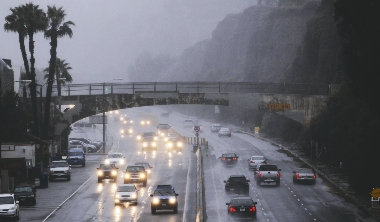 科学家称2010灾害频发多人为造成 This was the year Earth struck back. Earthquakes, heat waves, floods, volcanoes*, super typhoons*, blizzards*, landslides and droughts* killed at least a quarter million people in 2010 — the deadliest year in more than a generation. More people were killed worldwide by natural disasters this year than have been killed in terrorism* attacks in the past 40 years combined. “It just seemed like it was back-to-back and it came in waves,” said Craig Fugate, who heads the U.S. Federal Emergency Management Agency. It handled a record number of disasters in 2010. “The term ‘100-year event’ really lost its meaning this year.” And we have ourselves to blame most of the time, scientists and disaster experts say. Even though many catastrophes* have the ring of random* chance, the hand of man made this a particularly deadly, costly, extreme* and weird* year for everything from wild weather to earthquakes. Poor construction and development practices make earthquakes more deadly than they need be. More people live in poverty in vulnerable* buildings in crowded cities. That means that when the ground shakes, the river breaches*, or the tropical cyclone* hits, more people die. The January earthquake that killed well more than 220,000 people in Haiti is a perfect example. Port-au-Prince has nearly three times as many people — many of them living in poverty — and more poorly built shanties* than it did 25 years ago. Had the same quake hit in 1985 instead of 2010, total deaths would have probably been in the 80,000 range, said Richard Olson, director of disaster risk reduction at Florida International University. Climate scientists say Earth’s climate also is changing because of man-made global warming, bringing extreme weather, such as heat waves and flooding. The excessive amount of extreme weather that dominated 2010 is a classic sign of man-made global warming that climate scientists have long warned about. They calculate that the killer Russian heat wave — setting a national record of 43.8 degrees Celsius — would happen once every 100,000 years without global warming. Data show that 18 countries broke their records for the hottest day ever. White House science adviser John Holdren said we should get used to climate disasters or do something about global warming. “The science is clear that we can expect more and more of these kinds of damaging events unless and until society’s emissions* of heat-trapping gases and particles are sharply reduced.” (SD-Agencies) | 
